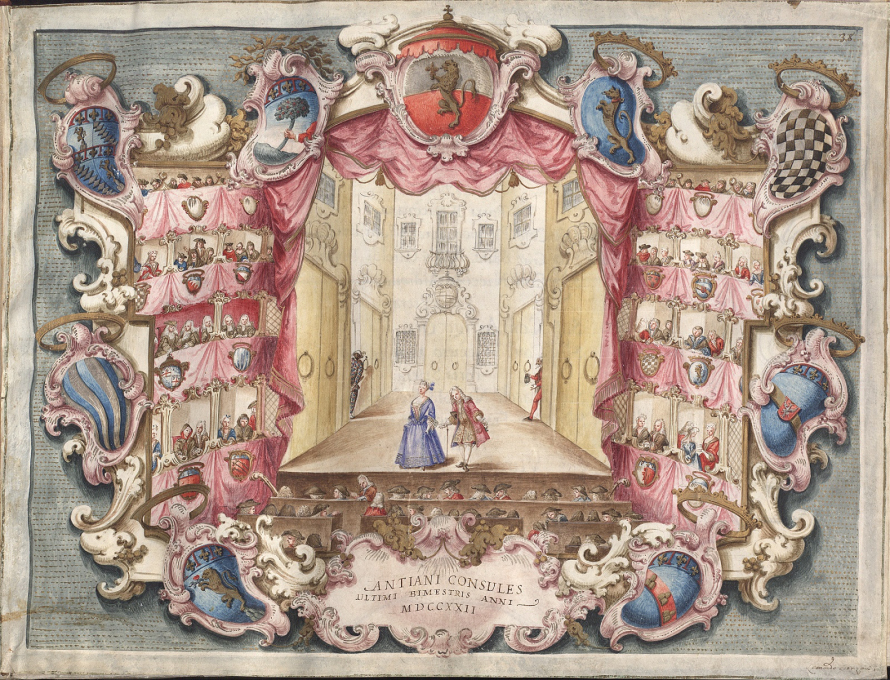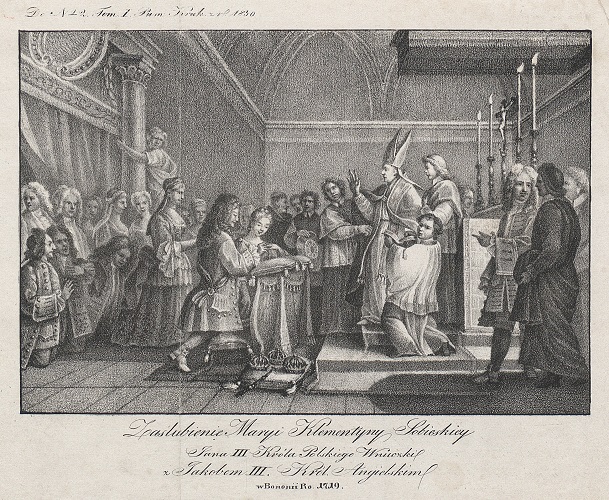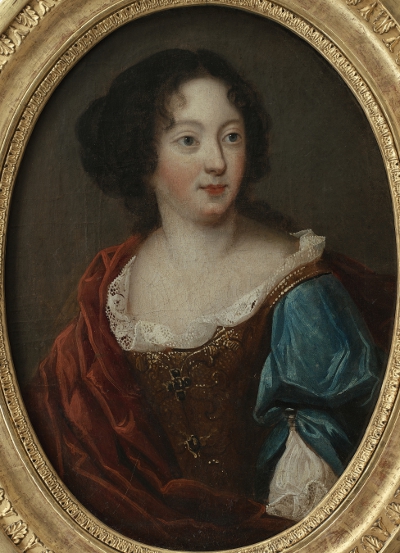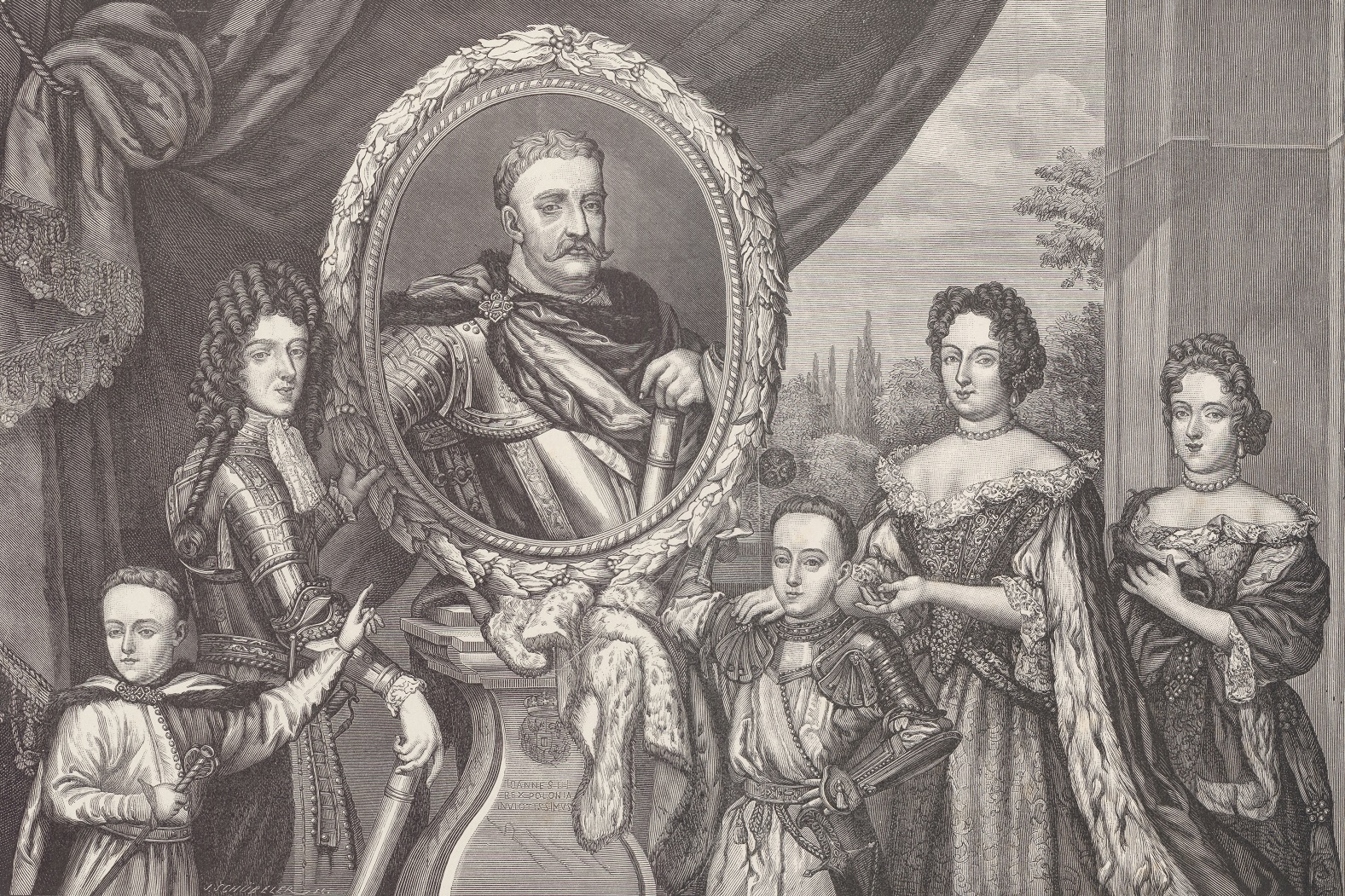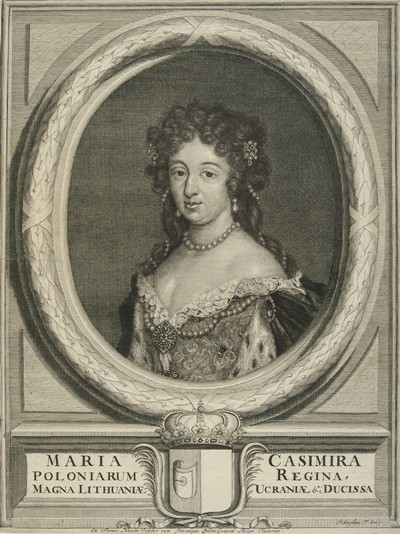Opera “Gismondo, Re di Polonia” (Sigismund, King of Poland) by Leonardo Vinci
Act I
Ernesto and Ermano pay hommage to Gismondo, praising the peace soon to come. Ermano harbours hatred toward Primislao, who killed his brother. Otone eagerly awaits his marriage to Cunegonda. Gismondo hopes that the union of his son Otone with Primislao’s daughter will join the two kingdoms, but Primislao intends to break the peace, believing it threatens his honour. He insults Ernesto, who, feeling wronged, vows to return to Gismondo and prepare for war. Cunegonda and Otone realise that war between their realms would again endanger their love.
They try to persuade Primislao to keep the peace and avoid another war and the deaths of innocent people. Otone suggests to Primislao that his father might privately recognise the Lithuanian crown’s rights — since Gismondo values peace over pomp, a secret homage would suffice. Both rulers agree. The ceremony of homage is to take place in a tent, away from the public eye.
Meanwhile, Giuditta confides to her brother Otone that she loves Primislao. She recalls how, at a ball in Warsaw honouring various deities, she met him disguised as Mars while she was dressed as Minerva. They danced together; he asked her name, but she remained silent. After the festivities, they never met again — yet she still thinks of him. Otone comforts his sister in an aria closing Act I.
Act II
As Primislao pays homage to Gismondo, the tent collapses. Feeling deceived, Primislao declares war on Gismondo. Though innocent, Gismondo understands his anger. The accident was the doing of Ermano, who seeks vengeance for his brother’s death.
Primislao accuses Cunegonda and Otone of treachery. Cunegonda swears hatred for Otone. Gismondo insists they are not to blame and vows to find the true culprit. Otone laments Cunegonda’s sudden loss of faith in his loyalty. Giuditta, torn between love for her father and for Primislao, despairs as war looms. She must also feign affection toward Ernesto and Ermano, who both desire her. They decide first to win the war, then choose which of them she will marry. Giuditta pleads that they may fight and kill, but spare two lives dear to her brother — Cunegonda and Primislao. They promise to do so.
Otone refuses to fight, and his father calls him a coward. Gismondo, unwilling to wage war but unable to avoid it, leads his army. Otone resolves to face Cunegonda — to gain her forgiveness or die. Primislao and Cunegonda vow hatred toward Gismondo and Otone. Though Cunegonda still wavers, her father convinces her that Otone, who proposed the secret homage, was behind the treachery. She rushes to the battlefield.
A dramatic encounter follows: Otone begs Cunegonda for mercy or death. When he attempts suicide, she seizes the dagger from him. Their sorrowful farewell duet closes Act II.
Act III
The battle begins; the Poles prevail. The wounded Primislao falls to the ground. Cunegonda, fighting in disguise, is saved by Otone. Hearing that Primislao has died, she falls into despair and wishes for death.
Giuditta finds the wounded Primislao and speaks with him. She tells him that Cunegonda is Otone’s prisoner — and that she herself is the Minerva he once met in Warsaw. To her joy, Primislao remembers. Giuditta leaves to seek help for him.
Ermano enters, recognises Primislao, and tries to kill him. As he raises his sword, Giuditta returns with soldiers to carry Primislao to the palace. Primislao insists he did not slay Ermano’s brother in such a treacherous way.
Meanwhile, Gismondo prepares his triumph and Primislao’s funeral, still believing him dead. Giuditta announces that he lives. Cunegonda can now marry Otone. Gismondo restores Primislao’s principality. A messenger arrives with a letter from Ermano, who confesses his guilt and has taken his own life. Otone reveals that Giuditta has long loved Primislao. Gismondo unites the two couples — Otone and Cunegonda, Primislao and Giuditta. The final chorus praises the great Sarmatian.
***
Gismondo, re di Polonia is one of the few eighteenth-century operas that draw upon the distant history of the Polish–Lithuanian Commonwealth. Setting the action in Warsaw makes it especially intriguing, though — in keeping with contemporary operatic convention — it contains little local colour. Nor do such elements appear in Vinci’s surviving score. The story told in Gismondo is universal: it portrays political deceit, the brutal struggle for power, rulers’ pride that leads to the deaths of countless innocents, and the destructive power of personal vengeance, which ultimately consumes not only others but, above all, the avenger himself.
